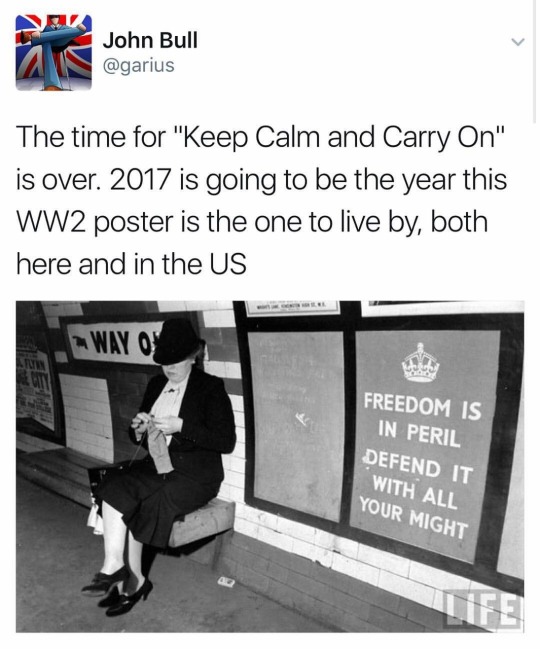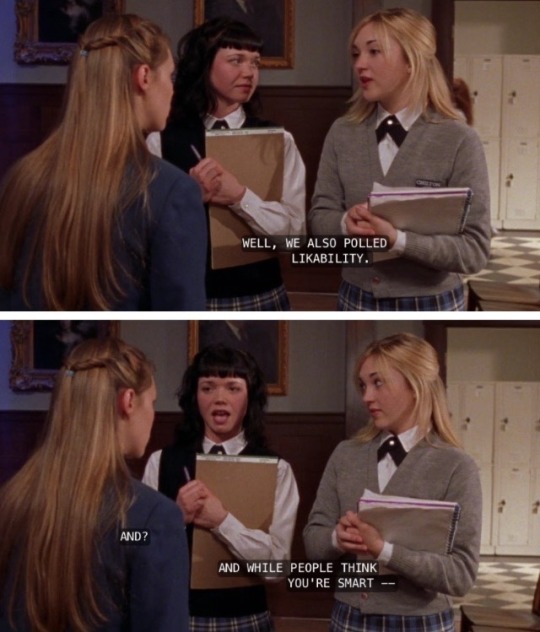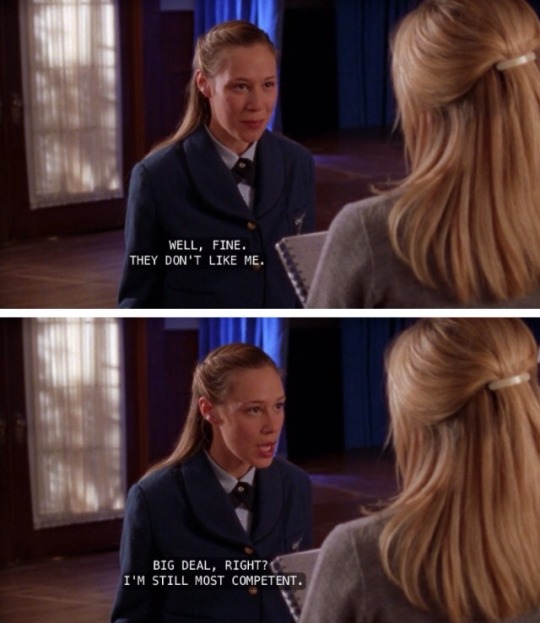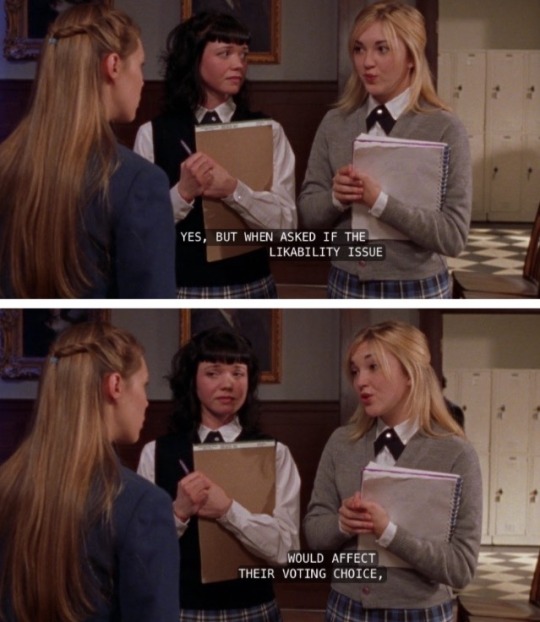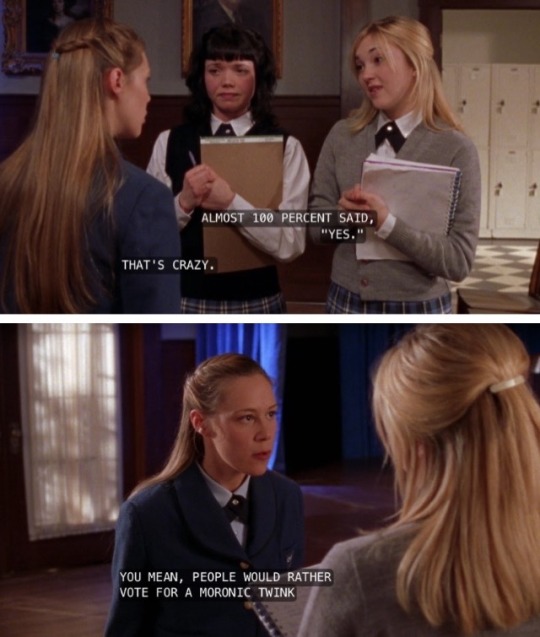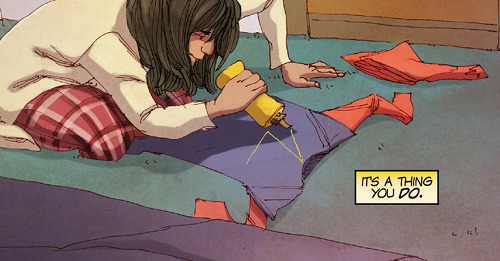Text
I’ve allowed for a lot of crazy things while watching Orphan Black, but I refuse to believe Cosima is anything less than amazing with small children.
12 notes
·
View notes
Photo

Мне нравится, что все эти разные виды кошек сдружились, несмотря на такие явные различия между ними
96K notes
·
View notes
Text
Also, there’s two episodes left, and you KNOW the body count’s going up. Helena dying for her sestras/babies has been written on the wall for like, 3 seasons. If you’re gonna kidnap Helena AGAIN, you better frickin’ reprogram her and put her back on the Leda hunt, because #worsethandeath
After a second watch of S5xE8, the concept of “a fate worse than death” in terms of character motivation especially resounds with me.
What irritates me as a writer and audience member is when a story relies on a character’s immediate death as a crutch to emotionally guide an audience. A character can be threatened with death, but make it poignant. Make it interesting. Don’t rely just on the death itself to create motivation for another character or visualize it for shock value–milk it for all the emotional and narrative subtext thread it’s got.
Avoid doing the Lost or GoT thing where the death is designed for shock value. Do the Battlestar Galactica or Breaking Bad thing where death is the unfortunate side effect of bad–albeit precise decisions, or ambition, or love. If you can’t answer the question “does this character HAVE to die” in a way that is completely justified beyond the exploration of all possible avenues, push further. Fiction writing is like graphic design in a way…we are world-building. We are crafting psychologies and allegories and situations. As in the painted or printed art mediums, cliches—like fear—are the mind killer. If they can be avoided, they should be.
TL;DR, Straight up death is boring and cliche. Either make it more complex, or try to avoid it altogether.
#obspoilers#hello I have woken from my slumber because orphan black#I have so much love and ugh for this episode
17 notes
·
View notes
Text
After a second watch of S5xE8, the concept of “a fate worse than death” in terms of character motivation especially resounds with me.
What irritates me as a writer and audience member is when a story relies on a character’s immediate death as a crutch to emotionally guide an audience. A character can be threatened with death, but make it poignant. Make it interesting. Don’t rely just on the death itself to create motivation for another character or visualize it for shock value–milk it for all the emotional and narrative subtext thread it’s got.
Avoid doing the Lost or GoT thing where the death is designed for shock value. Do the Battlestar Galactica or Breaking Bad thing where death is the unfortunate side effect of bad–albeit precise decisions, or ambition, or love. If you can’t answer the question “does this character HAVE to die” in a way that is completely justified beyond the exploration of all possible avenues, push further. Fiction writing is like graphic design in a way…we are world-building. We are crafting psychologies and allegories and situations. As in the painted or printed art mediums, cliches—like fear—are the mind killer. If they can be avoided, they should be.
TL;DR, Straight up death is boring and cliche. Either make it more complex, or try to avoid it altogether.
17 notes
·
View notes
Text
Rachel Duncan’s become that friend who tried a juice cleanse once and won’t stop talking about it.
56 notes
·
View notes
Text
Orphan Black is a series partially conceived with the idea that a woman can own and ultimately be the master of her narrative. This is not an idea that errs on the side of mere feminist wish-fulfillment–the series was the brainchild of two male writers, with much input from a pretty diverse set of producers, writers and actors/actresses. It’s a simple idea that entertains the concept of a woman being a character–or many characters–in a real and socially relevant mythology, just as has been the norm in many male led television franchises or films. By putting women and the socially disenfranchised at the heart of the narrative charge, and by putting the narrative in the realm of science fiction, a treasure trove of analytical possibilities open up to the writers and audiences who are willing to explore them.
So what am I getting at with all that? I’m trying to justify the sequence in S5xE2 “Clutch of Greed”, in which a female character with arguably the most troubled and tormented past of a score of troubled and tormented people, is removed from the narrative in a fairly gruesome way. To sprinkle salt in the wound, this character’s personal narrative also dies with her, uncompleted and now seemingly futile. M.K’s story is primarily covered in Orphan Black’s comic book lore, so for those who did not read them and ultimately had no real attachment to a fairly limited edition character, she perhaps seems to be just another tertiary clone who was involved in some things vaguely related to the clonespiracy, knew Beth, disappeared, reappeared, and then was killed. Even without the context of the comic backstory, her death is a sour note, unconventionally violent for a clone death, and deeply unsettling to watch.
Keep reading
#oh buddy#so many smarts#this is a female-centric show#but even in OB Universe this is a man's world
83 notes
·
View notes
Photo




incredible
68K notes
·
View notes
Text
My bros I have been doing a lot of reading about Wacky WWII Hijinks lately and I want to tell you a story because I love it okay
once upon a time there was a dude in Spain named Juan Pujol Garcia. Pujol was a chicken farmer. Pujol hated him some goddamn fascists.
See Spain had recently ended its civil war, with the fascists taking power. So when WWII broke out in Europe, Spain technically remained neutral but in practice was buddy buddy with the Nazis. Juan Pujol Garcia thought this was pretty bullshit
so soon after war breaks out Pujol travels to his local British embassy and goes “hey I wanna spy on the Nazis for you”
“who the fuck are you?” say the British, and kick him out
but Pujol is not deterred! He still wants to dunk on some fascists, so now he goes to his local German embassy instead. “hey” he says, “I wanna spy on the British for you, I sure do hate them”
“yeah okay” say the Germans “that seems pretty legit”
and just like that Pujol now officially works for the Abwehr, the German intelligence agency. They hand him some spy gear (invisible ink and such) and instruct him to travel to Lisbon, and from there make his way into the UK. So Pujol heads to Lisbon, and a little while later writes to his German handlers telling them he’s made it to England
Pujol had not made it to England. He had, in fact, made it to the Lisbon public library, where he checked out a number of English guide books and set about just wholesale making shit up
this is slightly complicated by the fact that, for example, he completely did not understand British currency and all his expense reports were basically gibberish. He also reported things like bribing Scotsmen, because the people of Glasgow would “do anything for a litre of wine” (an actual quote) because, hey, people in Spain like wine so that’s probably the same right?
Here is where it starts to get really crazy, because the Abwehr loves this. “wow this dude is a great spy” they say, because apparently none of them had ever been the England either. In fact, they are so pumped about this new awesome spy that the British start to get worried
you see, by this time the British had cracked German’s supposedly unbreakable Enigma code and were totally dunking on the Nazis by reading basically all of their ~super top secret~ radio transmissions. And, crucially, they’d become so good at breaking and reading traffic that there were literally no German spies in England. The Germans would set up a spy drop (usually dropping dudes in by parachute in the middle of the night), the British would intercept the message and then just scoop the dudes up as soon as they landed in a move that must have been SUPER embarrassing to the spies
so there are no German spies in the UK because they’re all sitting in a prison run by MI5 (although some are being run under supervision as double agents, feeding Germany bullshit). But suddenly MI5 is picking up all this traffic from the Germans talking about their super great spy- a spy the British do not have in their jail
“oh shit” says MI5, and starts rereading all the transmissions they have to and from this mysterious super spy.
“hey wait” says MI5, upon actually reading the shit the spy was sending. “someone is playing silly buggers, pip pip cheerio”
At this point, Pujol, still in Lisbon, had actually been approaching the British embassy again, repeatedly, but apparently “I am literally an Abwehr agent and would like to offer you my services” wasn’t interesting enough, because he was repeatedly turned away, again. It wasn’t until MI5 started asking around that one of the embassy staff was like “oh yeah we know that guy”
so in 1942 the British finally make contact with Pujol and he officially becomes a spy for MI5. They move him to London and assign him a case officer so he can start making up even better bullshit
and he does. Once actually in London, Pujol reports to the Abwehr that he’d recruited a whole slew of informants- from a bunch of Welsh Aryans to disaffected army officers. He ends up with a network of 20+ sub-spies, all feeding him information from around the UK
none of these people actually exist
Pujol just straight up invented like 20 people, keeping careful track of their fake personalities, names, and activities. With the help of MI5, the information he sends becomes even better- a mix of true but ultimately useless facts and actually important intel timed to arrive in Germany just slightly too late to be of any use. He and his “spy network” become the Abwehr’s most trusted agents
Pujol, now codenamed Agent Garbo (for his acting skills), ends up playing a huge role in the run-up to D-Day, where the Allies mounted a huge intelligence campaign to convince Hitler that the planned site of attack was going to be Calais and not Normandy (this was Operation Fortitude and you should absolutely look it up for more Wacky WWII Adventures). Obviously you know how this ended
crazily enough, the Abwehr never figured out that Pujol was a double agent. After the war he received both the Iron Cross Second Class (which require personal authorization from Hitler), and a Member of the Order of the British Empire (from King George VI)
unable to resist being totally fucking ridiculous, Pujol turned down MI5’s post-war offer to continue spying, but this time against the USSR. “no,” he said “just help me fake my own death and then I’m moving to Venezuela”
and that’s exactly what he did. Juan Garcia Pujol died in 1988, at the age of 76
211K notes
·
View notes
Photo





MRS. S DRUNK AF
1K notes
·
View notes






